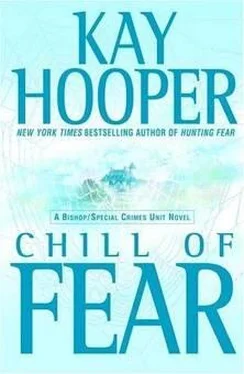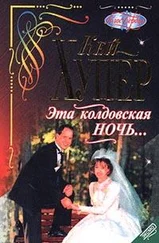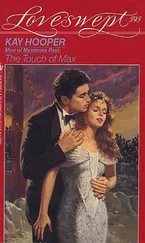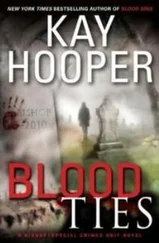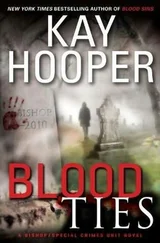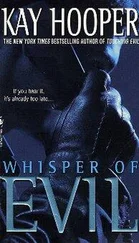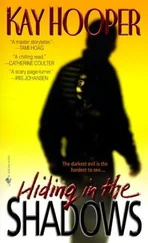"But remember the rule, Madison," her mother said. "Stay out of other people's rooms. Why don't you go to the library or the game room?"
"I probably will, Mama. Come on, Angelo." She left her parents in their two-bedroom suite — the Orchid Room, officially — and set off with her canine companion to explore.
She did check out the game room, finding one other child in there: a boy of perhaps ten who was utterly absorbed in the video game he was playing. There were a few adults in the room as well, several grouped around a pool table and others talking quietly over games of chess or cards, also engrossed in what they were doing.
Madison shrugged and went to study stacks of board games and puzzles on shelves by several handy tables. She responded politely to one elderly lady's greeting, helpfully picking up a playing card that had fallen to the floor near her chair.
"Well! No wonder it wouldn't come out right," the lady said, staring at the half-finished game of solitaire spread out before her. "Thank you, dear."
"You're welcome." Madison's experience with elderly ladies told her that this one would talk to her as long as she stood there, so she wasted no time in moving away. It wasn't that she didn't like elderly ladies, it was just that she wanted to see what else the hotel had to offer.
They were supposed to stay here for a whole week, and Madison was determined to explore her options.
She left the game room and continued on, saying to Angelo, "I think you're the only dog here."
Angelo hesitated, whining, when she turned down the long hallway leading to the North Wing, and she said impatiently, "You didn't want to go into the Zen Garden, either, but we had fun in there, didn't we?"
The little dog whined again, but when his favorite person in the whole world continued without pausing, he hurried to catch up, ears and tail lowered in unhappiness.
"You're a baby," Madison informed him. "I told you that you don't have to be afraid of them. They've never hurt us before, have they?"
Whatever Angelo thought about that declaration he kept to himself, sticking close to Madison as she explored two sitting areas and a couple of short hallways before going up the stairs to the next floor.
"Madison!"
She smiled at the little girl beckoning from the other end of the hall, and hurried toward her. "Hey! I was beginning to think I'd never find you."
"I said I'd be here, didn't I?" her new friend replied.
"Yeah, but you didn't say where." Madison joined her at the T-junction of the hallway, looking to the left and the right to find two more shorter corridors. "What's up here? Be quiet, Angelo," she added in an aside to her whining dog.
"There's a secret place. Want to see?"
"Like a secret room or something?" Madison liked that idea. "Where?"
"Follow me." Her new friend led the way toward a dark green door at the end of the hallway.
Whining louder, Angelo followed them.
Diana pushed her plate away and said, "It's no use. I can't just eat and pretend I'm not waiting for the rest of your story."
Since he didn't have much appetite himself, Quentin didn't protest except to say, "Murder isn't the best thing to talk about over lunch."
"You should have thought of that before you suggested it."
"I did." He smiled wryly. "But I also thought you'd be more willing to sit and talk if the setting was... unthreatening. Lunch on a sunny veranda, other people near, no reason to feel crowded or cornered."
"Why would I feel that way in any case?"
"It was an impression I got this morning. That the observation tower was too small, even open as it is, that you felt uneasy there. Then again, maybe it was just me." He gazed at her steadily.
Somewhat evasively, she said, "You seem to get a lot of feelings about... places. About this place."
Quentin allowed the shift in subject, still cautiously feeling his way with her. "Some people, to varying degrees, of course, are sensitive to their surroundings," he said matter-of-factly, pushing his own mostly untouched plate away. "Our brains are apparently hardwired to pick up electrical and magnetic impulses that most people aren't aware of."
"How is that possible?" She was toying with her glass, frowning a bit.
"How could it not be? It's the way the human brain works, Diana, by transmitting electrical impulses. Energy. And energy is all around us. It only makes sense that some people possess a stronger-than-average sensitivity to that energy. I mean, as a species we throw out an occasional genius or inexplicably gifted person, a Mozart or an Einstein or a Hawking. Their brains seem to work differently from the norm, but it doesn't make them less human." He shrugged. "I think we're just beginning to understand how the mind really works. Who knows what we'll define as 'normal' in the years and generations to come?"
Slowly, she said, "So you really do feel things about places? About people?"
"A bit, though it's not my strong suit," he replied easily. "But a place like The Lodge has such a long history it's not all that surprising that its energy would be unusually strong. Strong enough so that even I can pick up on it sometimes. A clairvoyant or a medium would probably sense a lot more."
She blinked. "You're talking about... ESP?"
"I guess some people still call it that. Or the paranormal." He shrugged again, keeping his tone casual. "The very idea of psychic ability is still denied by many in the mainstream, but as more and more research is being done, we're learning that very few things are impossible when it comes to the human mind."
"You seem to know a lot about it," she said slowly.
Quentin followed his instincts. "The unit I belong to was designed around the idea that psychic abilities could be channeled constructively and used as investigative tools. So we've done plenty of research and have several years of experiences now to study and draw on. Empirical evidence, the scientists call it. Not absolute scientific proof, but we're getting there."
"You believe you're psychic?"
He could hear the tension in her voice and answered carefully. "I have the ability to use my five senses with more control and precision than most people, given the belief that it was possible and years of practice. And, yes, I believe I possess an extra ability most others don't have or can't tap in to."
"What ability?" The tension was growing.
"Sometimes I know things before they happen."
Diana sat back abruptly and crossed her arms before her. "So you can see the future? Tell me my fortune?"
"I don't see anything," Quentin said. "I don't read tarot cards or gaze into a crystal ball or study the lines on someone's palm." His voice was dry now. "I just know things sometimes before they happen."
"Just," she muttered.
"It's a perfectly human ability, Diana, even if it is a rare one."
"How can you possibly know something is going to happen before it does} That doesn't make sense."
"It's one ability we really can't explain scientifically," he admitted. "Using today's science, that is. If time is linear, as we believe it is, then it certainly doesn't seem possible that the human mind could, as you say, perceive something that hasn't yet happened. Then again, maybe we don't understand time any better than we understand our own minds."
She drew in a deep breath and let it out slowly. "I have enough trouble with reality as it is, thank you. Even if I believed what you say is possible, I—"
"Explain your drawing," Quentin invited.
"Like I said, I must have seen a photograph."
"As far as I've been able to find out, Diana, Missy and her mother had no family. They had lived here from the time Missy was three or four. And less than a year after she was murdered, the North Wing was left nothing more than a hollow shell after a fire gutted most of it, destroying all of her and her mother's possessions. So how did you see a photograph of her? In fifteen years of searching, aside from crime-scene and autopsy photos, I've never been able to find one."
Читать дальше
